Reading is Fundamental: The 2003 Summer Classic Movie Book Challenge
Every year, I look forward with great anticipation to the announcement of the Summer Classic Movie Book Challenge, the brainchild of Raquel Stecher over at the Out of the Past blog. This event was made for people like me who love buying classic movie-themed books, but never seem to get around to reading them. To participate, you read six of these books and then write about them on your blog, podcast, YouTube channel, Instagram, LibraryThing, or Goodreads.
I’ve been happily participating in Raquel’s challenge since she introduced it 10 years ago, in 2013. I usually manage to read all six books, but there have been a few years when I couldn’t pull it off.
You can count this year among those few.
Let me explain. Last year, my pal Maudie Triplett recommended to me the 1993 biography of Marilyn Monroe by Donald Spoto. She spoke of it so highly that I put it on my Christmas wish list, and I was pleased to find it under my tree! I started reading it in April . . . and finally finished it a week ago.
I don’t know what happened, y’all. I just couldn’t get it together this year. But I’m not going to (continue to) beat myself up about it. I am determined to do better next year – and for this year, I’m devoting my usual massive six-book wrap-up post to the one book that I managed to complete.
Marilyn Monroe: The Biography, is one of countless books written about this unforgettable star, and from what I understand, it’s considered to be one of the best. I’m not surprised – it’s not only meticulously and exhaustively researched, but it’s written in a easy-going, almost conversational style that, unlike many biographies, makes it a pleasure to read.
I have been a fan of Marilyn Monroe for as long as I can remember – a huge poster of her in The Seven-Year Itch is on my bedroom wall, and I can’t get enough of her performances in films like The Asphalt Jungle, All About Eve, Bus Stop, Don’t Bother to Knock, The Seven-Year Itch, Some Like it Hot, How to Marry a Millionaire, Clash By Night, and Gentlemen Prefer Blondes. But after reading this book, I’m even more of a fan than I could have imagined. I’m not even sure that the word “fan” is a sufficient descriptor.
Spoto’s book is divided into chapters according to the timetable of Marilyn’s life, beginning with her maternal great-grandfather, Tilford Marion Hogan, who was born in Illinois in 1851. Spoto continues taking us through Marilyn’s family lineage, from Hogan’s marriage to one Jennie Nance, to the birth of their three children, including the liveliest of the group, Della May, whose daughter Gladys Pearl was Marilyn’s troubled mother.
I’ve long known certain indisputable facts about Marilyn – she was born Norma Jeane Mortenson on June 1, 1926, her mother was mentally ill, and she was raised in a series of foster homes. I know that she was married three times – at the age of 16 to a young employee at Lockheed Aircraft, to baseball great Joe DiMaggio, and to playwright Arthur Miller. I know that she entertained troops in Korea, and studied at the famed Actors Studio in New York, and sang “Happy Birthday” to President John F. Kennedy. But I learned so much from this book that I never knew. Like the following . . .
Marilyn and DiMaggio traveled to Japan for they honeymoon; while there, she was asked by “some general” to travel to Korea and perform as part of the USO entertainment. Her relationship with DiMaggio was already rocky, with her new spouse resenting the level of Marilyn’s fame. When Marilyn asked for Joe’s input on her invitation to Korea, he shrugged, “It’s your honeymoon. Go ahead if you want to.”
Marilyn’s makes an iconic appearance in the Seven Year Itch, standing over a sidewalk grate while the rushing wind from the subway below blows her dress up. Censors cut from the final print a line that Marilyn delivered to co-star Tom Ewell. Marilyn asks Ewell if he wishes that he could wear skirts and adds, “I feel sorry for you men in your hot pants.”
Marilyn held a press conference in New York in January 1955 to announce the formation of her new production company, Marilyn Monroe Productions. Every notable columnist and reporter was present – with the exception of Dorothy Kilgallen and Walter Winchell. Marilyn’s partner, Milton Greene, excluded these two because of “their general hostility toward Marilyn.”
In the early 1950s, Marilyn learned that her idol, singer Ella Fitzgerald, was unable to get an engagement in any Hollywood nightclub. Marilyn contacted the owner of the Mocambo; if he would book Fitzgerald, Marilyn promised that she would take a front table every night of the engagement. And she did. Spoto stated that, with this action, Marilyn “placed herself firmly in the vanguard of a controversial support of civil rights.”
Marilyn wrote poetry. I liked this one:
From time to time
I make it rhyme
But don’t hold that kind
Of thing
Against me –
Oh well, what the hell,
So it won’t sell.
What I want to tell –
is what’s on my mind:
‘taint Dishes,
‘taint Wishes,
it’s thoughts
flinging by
before I die –
and to think
in ink.
In 1956, for an Actors Studio assignment, Marilyn performed a scene from Eugene O’Neill’s Anna Christie with actress Maureen Stapleton. Marilyn was reportedly terrified about the performance, but by all accounts, she was superb. Kim Stanley recalled that viewers “were taught never to clap at the Actors Studio, like we were in church, but it was the first time I’d heard applause there.” (I would dearly love to somehow see a recording of this.)
Josh Logan, who directed Marilyn in Bus Stop, called her “one of the great talents of all time, and the most talented motion picture actress of her day . . . the greatest artist I ever worked with in my entire career.”
Marilyn starred in 1956 with Sir Laurence Olivier in The Prince and the Showgirl. When he introduced Marilyn to the English cast, he told them he was looking forward to working with old friends like Sybil Thorndike and Esmond Knight. He then told the cast that “everyone would be patient with [Marilyn], that their methods would perhaps require some time for her to learn, but they were pleased to have ‘such a delightful little thing’ among them.” (Ugh.) To his credit, years after Marilyn’s death, Olivier said that Marilyn gave a “star performance” in the film. (And speaking of The Prince and the Showgirl, it’s one of the few Marilyn movies that I’ve never seen, but the author’s rave review made me want to seek it out posthaste.)
Less than a month after she married playwright Arthur Miller, Marilyn found her husband’s notebook open on their dining room table. Written there were Miller’s feelings about having second thoughts about the marriage, and “that he thought she was an unpredictable, forlorn child-woman he pitied, but that he feared his own creative life would be threatened by her relentless emotional demands.”
Numerous examples of Marilyn’s kind nature were offered throughout the book. There was the time Marilyn handed a studio electrician a roll of bills after learning that his wife was seriously ill. And when she anonymously gave a thousand dollars to help with the funeral expenses for a crewmember’s spouse. And when one of her movie sets was visited by two girls whose sister had recently been killed in an accident; Marilyn asked to be introduced and took pictures with the girls. And after her divorces from both DiMaggio and Miller, she maintained close and friendly relationships with their families.
In 1961, one of Marilyn’s therapists, Dr. Marianne Kris, suggested that Marilyn check into a private hospital word for a “physical workup and a good rest.” Instead, Kris took Marilyn to Payne-Whitney, the psychiatric division of New York Hospital, where she was placed in a room that was locked and padded. Her purse and clothes were removed, her cries for release were ignored, and staff threatened to put her in a straitjacket. After attempting to contact several friends, Marilyn finally reached Joe DiMaggio. Although they hadn’t seen each other in six years, her ex-husband sprang into action and arranged for Marilyn to be released into his custody. (Dr. Kris, incidentally, was summarily dismissed.)
The author refutes several long-standing rumors about Marilyn, providing evidence that she (1) never knew the minor actress Jeanne Carmen, who would later make a name for herself with claims that she was Marilyn’s close friend and roommate, (2) met with President John F. Kennedy on four occasions, only one of which was a sexual encounter, and (3) and never had any kind of intimate relationship with Robert F. Kennedy. Spoto also provides extensive information about her experience on her final, never-completed film Something’s Got to Give, obliterating the party line that she was fired because of her repeated absenteeism – including her missing work to famously sing “Happy Birthday” to President Kennedy – and then sued for breach of contract by 20th Century Fox for $750,000. Marilyn’s absences were due in large part to illness, which included bronchitis and sinusitis, and her performance at Kennedy’s birthday celebration had previously been approved by the film’s producer. She was eventually not only rehired for the film but also given more than double her original in salary – and allowed to replace director George Cukor with her How to Marry a Millionaire director Jean Negulesco. (Before Marilyn’s was re-hired, her part was offered to Lee Remick, but co-star Dean Martin refused to do the film if Marilyn wasn’t in it. As if I needed another reason to love this guy.)
Marilyn had agreed to remarry Joe DiMaggio; at the time of her death, she was in the process of making plans for their August 8th wedding and reception, with a honeymoon in New York. She also had several film projects in the works after the completion of Something’s Got to Give, including a biopic of Jean Harlow, a comedy with Dean Martin called I Love Louisa, and a musical version of A Tree Grows in Brooklyn. (I Love Louisa would later be filmed with Martin, Robert Mitchum, and Shirley MacLaine in the role intended for Marilyn, and released in 1964 as What a Way to Go!)
In her final interview, published in Life magazine on August 3, 1962, two days before her death, Marilyn gave a number of revealing and insightful quotes. I loved reading them, and it was hard to pick a favorite, but this one, about her penchant for tardiness, was among them: “Successful, happy, and one time – those are all the glib American cliches. I don’t want to be late, but I usually am, much to my regret. Often, I’m late because I’m preparing a scene, maybe preparing too much sometimes. But I’ve always felt that even in the slightest scene the people ought to get their money’s worth. And this is an obligation of mine, to give them the best. When they go to see me and look up at the screen, they don’t know I was late. And by that time the studio has forgotten all about it and is making money. Oh, well.”
Finally, Spoto comes up with his own very specific theory of how Marilyn died, and he shoots sizable holes in the many speculations that have cropped over the years, including that Marilyn was murdered by the FBI or the Mafia, or that her death was somehow involved with her (non-existent, according to Spoto) affair with Robert Kennedy.
This is one of the best movie star biographies that I’ve ever read; I was sorry to learn that author Donald Spoto died earlier this year at the age of 81 – I would certainly have written to him to let him know how much I was affected by his book. I really can’t say enough good things about it. I regret that it took me a full FIVE MONTHS to read it and that I didn’t succeed in the challenge this year, but I’m gratified that the one book I read was such a winner.













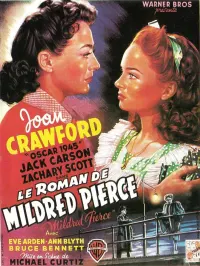




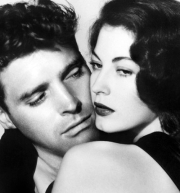
















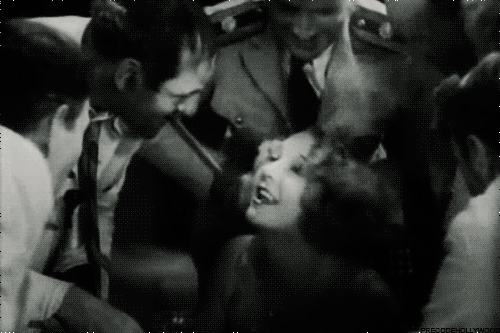


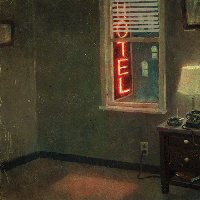
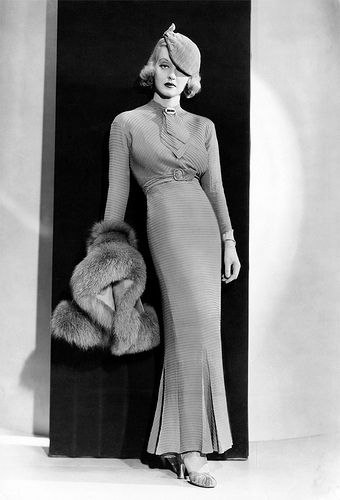



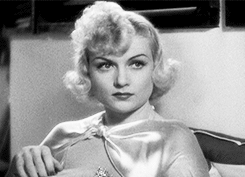
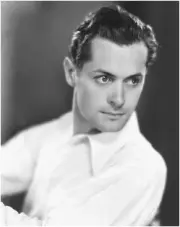
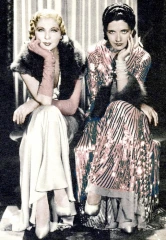

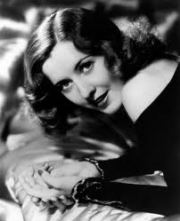



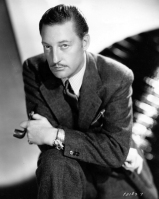




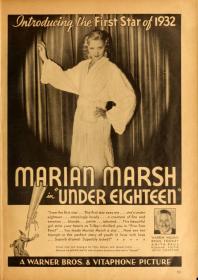
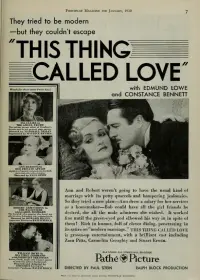

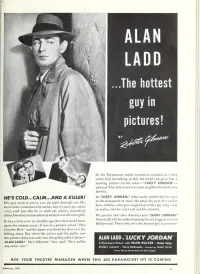
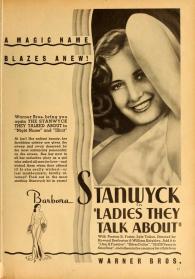

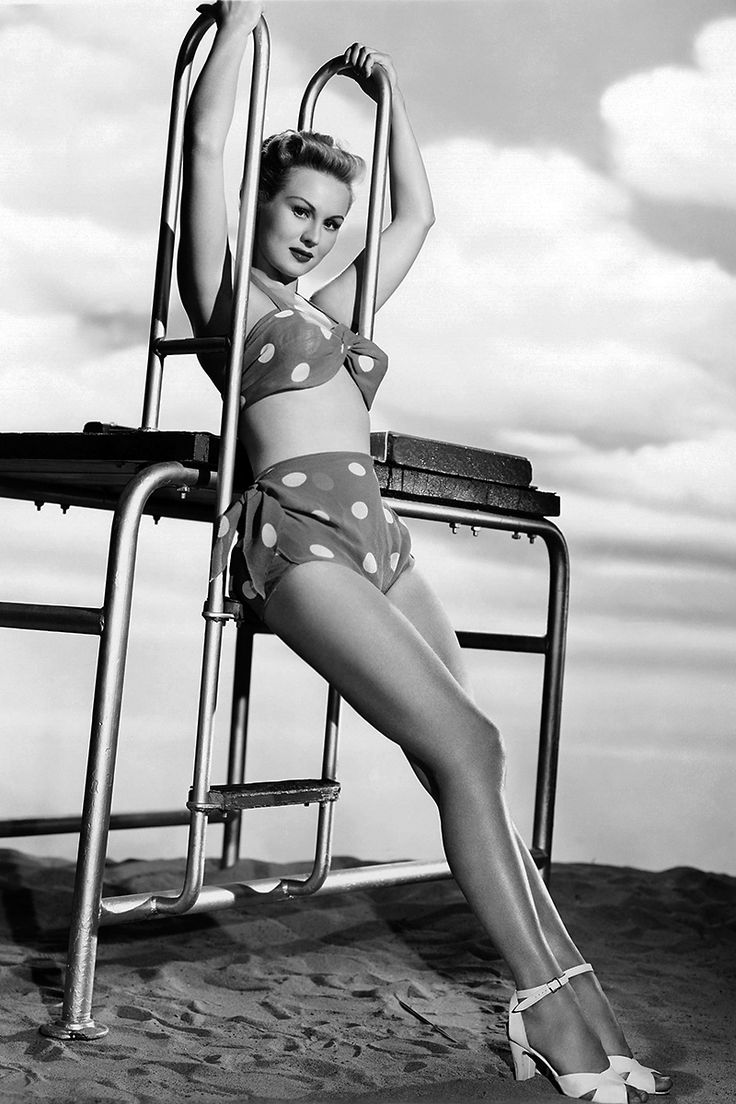



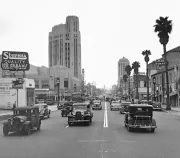



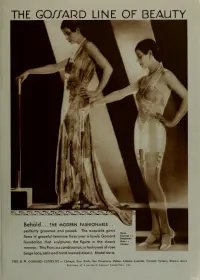

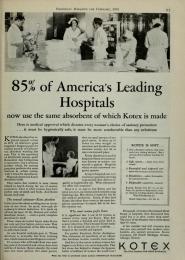

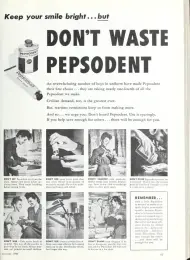


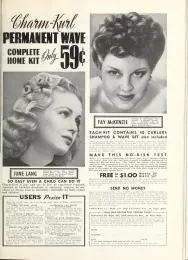





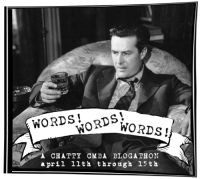

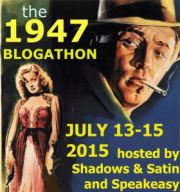
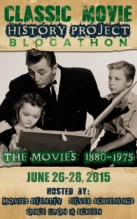
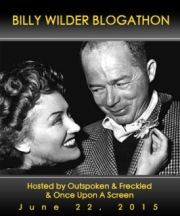


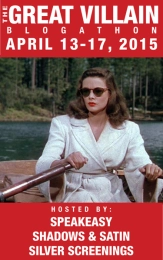


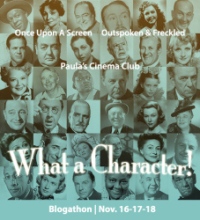
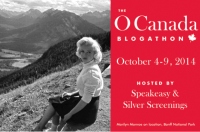


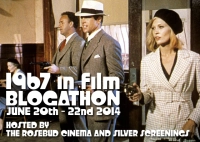


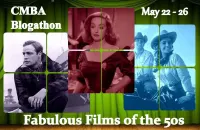
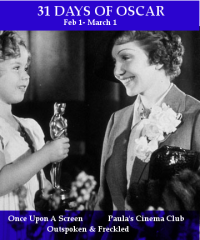
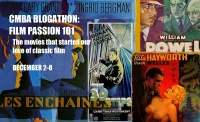







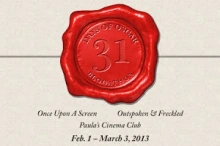

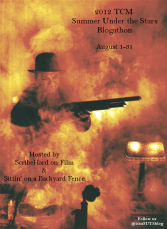


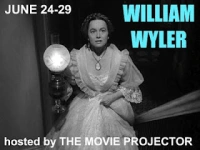





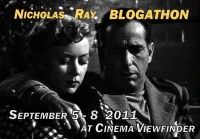

Although I always look forward to your giant 6 book review, I’m proud that you tackled this one and that it was such a good reading experience for you!
Raquel, I look forward to continuing to be inspired to read the classic film books in my collection all year ’round! I appreciate the events you’ve hosted all these years — I can’t imagine the amount of work that went into it, but I know it was considerable. Thank you for coming up with this great idea. It’s been a blast!
Karen, anyone who captions a photo of Arthur Miller with the phrase, “Don’t get get me started on this guy,” has my undying loyalty and affection! He and his notebook deserve to listen to a compilation of the loudest Stanwyck “get out” moments for all eternity, amiright?!
I know exactly what you mean by, “I’m not even sure that the word “fan” is a sufficient descriptor.” Same! Spoto’s book left me feeling… protective of her, and it jacked up my appreciation of her work to a whole other level.
I’ve said it before and I’ll say it again: Spoto writes of Marilyn with the kind of compassion and understanding I wish she’d had more of in life. He’s clear-eyed, but kind. Every Marilyn fan owes Spoto a great debt imho. I wish I’d reached out to him when I first read the book years ago…
As for the summer reading challenge, I think you should give yourself more credit — the Spoto book has SO much going on, it’s like SIX typical classic film books in one 😉
Fantastic article, Karen! I’m thrilled you liked the book!!
You saying that the book left you feeling protective and more appreciative of Marilyn’s work is exactly how I felt.
Also, it looks like Raquel is changing her challenge, so I’m glad that this book was my swan song under the original competition.
If you were to choose only 1 book this year, this biography sounds like the one to pick. Thanks for sharing your thoughts – you highlighted a lot of things I didn’t know about Marilyn, either. I’m going to keep an eye out for this one!
There are so many books about Marilyn — several of which I have — but this is the first that I really trusted. The research was amazing.
Excellent article, Karen (& reply, Miss Maudie)! Do you ladies share my admiration for MM’s amazing work in “The Misfits” (despite her ex, A Milller, writing the story)? 🎬😎Cynthia
Thank you, Cynthia! As a film, I wasn’t that crazy about The Misfits, but I thought that Marilyn was outstanding. I definitely share your feeling for her performance.
Great post! Marilyn led such a difficult life. I didn’t realize that Kilgallen and Winchell had it out for her, although given their character it’s believable. A very touching tribute!
Thank you so much, Paul. You are so right about her difficult life. I wish it could have been happier, and I wish that she knew how much she would be loved and appreciated for decades to come.
Karen, thank you also for the special photo of MM & Joe D. We’ll always wonder if their love for each could have overcome their fame a ‘second time around.’ He certainly cared for her very deeply. 💖Cynthia
I was so glad to be able to find one, Cynthia. I like to think that the second time around would have been everything they both needed.
Well said – may love & peace be theirs in Heaven! 💖
Absolutely. 💖